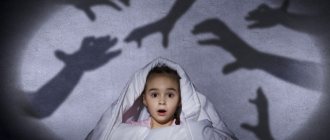A moment of excitement under the dentist's office is a natural thing - as you know, SPA procedures are not carried out there. It’s worse if the fear of dentists is in the nature of a psychological phobia: a person is ready to endure a toothache for days and wash it down with pills, putting off a visit to the dentist until the last minute and comparing it to being shot.
Someone is afraid of mice, spiders, and you are afraid of the dentist? How you ended up in the ranks of dental phobes and what to do about it - we will figure it out in our article.
What is dentophobia
Toothache is considered one of the most severe and it is impossible to cope with it without a doctor. By delaying a trip to the dentist, a person often only makes the situation worse.
Dentophobia is the fear of contact with the dentist and the very visit to the dental office. The cause of a phobia is most often emotional shock. Moreover, any, even the most harmless procedure, causes a subconscious reaction, manifested by somatic disorders, up to loss of consciousness. Abstract advice on how to stop being afraid of dentists and overcome fear will not help in this case. We will have to identify the variety, the source of concern, and fight it purposefully.
Types of dentophobia
There are 3 options depending on the occurrence and symptoms:
- Congenital. The rarest and most difficult to correct. It is based on a general fear of medical procedures, from examination to testing.
- Acquired. It is observed in most people who have negative experiences in the treatment and removal of teeth. The disorder can be treated, but first you have to understand the causes of the phobia and understand how to overcome the fear of the dentist - on your own or with the help of a psychologist.
- Imaginary fear is more common in children. They have never been to the doctor, but they have come up with many horror stories about it, which they themselves are afraid of. But this problem is the easiest to fix. It is enough to attend an appointment with a qualified specialist in a calm atmosphere with your parents. In adults, an imaginary phobia develops when not visiting the dentist for a long time.
Why are we afraid to treat our teeth?
Most human fears are far-fetched and exaggerated. The fear of pain is commonplace and is present in most people. It is also inconvenient that a person, sitting in a chair, cannot see what the dentist is doing in his mouth.
It is imperative to visit a doctor, otherwise it will affect your dental health. In the fear of dentists, as in any fear, one cannot miss the moment of its transition into a phobia, which is then very difficult to cure.
Banish bad thoughts from your head before visiting a doctor. Do not forget that modern medicine has the best equipment and painkillers.
Possible causes of fear
Many people begin to give different advice, hearing from friends the phrase “I’m afraid of the dentist and dentists in general, but I don’t know what to do.” They are correct in the general direction, but do not take into account the specifics of the occurrence of fear. To successfully overcome it, you need to find the prerequisites for its occurrence. Most often they are:
- high sensitivity of the oral cavity to any manipulation, leading to a subconscious expectation of severe pain;
- recent negative experience visiting a doctor;
- panic attacks that regularly occur in a person against the background of a labile nervous system or when there is a hormonal imbalance;
- gag reflex at the sight of dental instruments;
- irrational fear of contracting an infection through mirrors and probes;
- fear of the need for course treatment;
- childhood psychological trauma.
To understand how to stop being afraid of dental treatment and not fall into hysterics, you will have to analyze your well-being at the thought of visiting the office and find the pain point that provokes the appearance of negative emotions. Having realized where the source of fear lies, you can look for ways to cope with increased anxiety.
Anesthesia
Medicine is developing rapidly. In modern dentistry, the latest drugs are created and treatment methods are developed for children and adults. How not to be afraid of the dentist and go to the appointment with pleasure? Now all clinics offer a wide range of pain relief methods. They are divided into:
- Injectable.
- Non-injectable.
Injections are given both with disposable syringes and injectors. Such anesthesia, in turn, is divided into 3 types:
- Infiltration - insertion of a needle into the transitional fold of the mucosa. This method is practically painless.
- Conduction is a complex method of anesthetizing the branches of the trigeminal nerve.
- Stem - in this case, anesthesia affects the entire jaw and is used for severe injuries.
Non-injection methods are also different:
- Electroanalgesia.
- Reflexology.
- Freezing individual areas for treatment.
- Acupuncture.
- The psychological method of pain relief is based on the use of music and films.
General anesthesia is used in some cases. For those who cannot overcome fear at all, doctors recommend sedatives, which are taken under the supervision of doctors before starting dental treatment.
Signs that you are afraid of dentistry
Regardless of the form of dental phobia, the symptoms are almost the same. The main ones are reflex muscle tension, increased sweating, increased heart rate when a clinic is mentioned or the need for examination by a doctor. Depending on the individual characteristics of the psyche, dilation of the pupils for no apparent reason, slight tremor of the limbs, diarrhea, surges in blood pressure, and intestinal colic are observed.
This clinical picture clearly indicates the need for outside help, for which there are many explanations on how to stop being afraid of the dentist.
When a specialist approaches, unmotivated aggression, vomiting, and refusal of any contact may occur. Upon realizing the relative helplessness before the need for examination, a pre-fainting state occurs, turning into a full-blown faint, accompanied by severe headaches.
It will be necessary to give a person psychological self-regulation skills to relieve stress. There are many ways, the main thing is to choose an effective one and test it in practice, getting rid of the negative reaction.
Types of pathology
There are several types of dental phobia, the elimination of each of which requires a special approach:
- Purchased . This is the most common form, which develops as a result of negative experiences experienced in the past. If a person had to endure severe pain or a long process of dental treatment, then during the next visit to the doctor, such a patient may develop dental phobia.
- Congenital . It develops regardless of the presence or absence of negative experience. This form appears due to an unreasonable fear of filling or tooth extraction. If the first treatment for such a person is painless, then the phobia may go away. However, in some patients, even the absence of unpleasant sensations during treatment can only lead to a worsening of the situation.
- Imaginary . Most often it occurs in people who have never been treated by a dentist, but have heard about negative experiences from friends, relatives or the media. Most often, such persons have a wild imagination and incorrectly perceive the entire treatment process. As a rule, to eliminate a phobia, it is enough to overcome your own fear once and make sure that there is nothing terrible about visiting the clinic.
We recommend reading: How to overcome the fear of losing a loved one
How to overcome your fear of the dentist
Dentophobia refers to painful conditions. A person really feels bad on a physical level and persuasion is not enough. The sooner the problem is recognized, the more successful and faster the condition will be corrected. It is recommended to use a combined approach, where drug support at the level of sedatives is combined with other methods of stabilizing mental balance.
But remember that the use of any medications must be under the supervision of a doctor.
People's Councils
The saying that all diseases are from nerves is true for impressionable people who are afraid of the dentist. It is the psychological component that causes physiological disorders. It doesn’t matter which form dominates, in any case, the main task is to normalize the emotional state. Herbalists have many recipes to reduce anxiety.
Please note: herbal remedies have a cumulative effect; infusions and decoctions should be taken in a course, starting 10-14 days before the planned trip to the dentist.
Herbal infusions have a beneficial and comprehensive effect on the body, and are endowed with a minimum of contraindications.
The most effective plants for restoring mental balance include:
- chamomile;
- motherwort;
- St. John's wort;
- lavender;
- mint;
- oregano;
- valerian;
- ginseng;
- hop;
- hawthorn.
An excellent remedy for getting rid of increased anxiety is Quatera medicine, but it is prepared to order in pharmacies and is only available with a prescription.
Psychological attitude
Fear is a normal reaction to a real or imaginary threat; you should not be ashamed of it. Courage lies in embracing fear, not denying it. It is possible to transform paralyzing horror into mild excitement, but this will have to be done gradually and systematically. Trying to convince yourself 10 minutes before going to the clinic that everything is fine will provoke an exacerbation of the phobia. Therefore, start preparing a week before your visit.
When choosing a method for not being afraid to go to the dentist, you need to be extremely honest in determining for yourself the reason for your fear, and then begin taking active steps. First of all, you need to put defeatist and panicky thoughts aside. Many people tend to create a problem from scratch and worry about something that has not yet happened, coming up with the most unfavorable scenarios for the development of events. It is recommended to imagine a more positive outcome and try to believe in it. Pleasant light music and a humorous conversation with friends will help you relax. For psychological support, you should turn to relatives or friends who will take the time to go to the dentist for company. This is necessary to distract from problems along the way and while waiting at the office.
For a child, the psychological attitude is especially important. The task of parents is to ensure that the child is not instilled with the idea of fear before visiting a doctor. You can first play story games about the good doctor with him several times.
Recommendations from psychologists
To understand how to prepare yourself for going to the dentist without negative feelings, it is worth studying the advice of specialists who work with various types of phobias. Interestingly, the fear of spiders, closed spaces and open water has much in common with dentophobia:
- You need to allow yourself to be afraid. An attempt to drive negativity inside will result in an increased reaction of the body in a short time. It’s easier to admit that there is fear and that it’s quite normal. After this, the feeling will become more controlled and adequate.
- Understand that there will be no pain. If you are very nervous, you should definitely talk to a specialist about your worries and ask them to first use an anesthetic gel or spray, and then give an injection.
- Analyze the consequences of refusing a systematic visit and examination, when instead of a minor manipulation you will have to undergo large-scale treatment.
- You need to make your own choice of clinic. To do this, you need not just call the directory, but come in person, walk along the corridors, evaluate the cleanliness and modern equipment. This step will help ensure compliance with sanitation standards and the professionalism of doctors.
- It is recommended to sign up for a preliminary consultation, communicate with the dentist during the examination and decide on the issue of trust in the specialist. The main criterion will be patience and tact, willingness to answer questions and understanding of the patient’s complex psychological problem. An experienced doctor is able to relieve tension, dispel some fears and describe in detail any manipulation.
- Preparation for the visit is mandatory. It includes clarification of the time of the visit and its planned duration, advice on diet before and after treatment.
- For many patients, when asked what to do if you are very afraid of a dentist bending over a chair, psychologists advise using a distraction maneuver by forcibly occupying the panicking brain with solving a logical problem or repeating an obsessive song.
- It is worth mastering the technique of muscle relaxation and relaxation in advance.
- The promise of a reward for courage shown in the clinic works great, and the patient’s age does not play a role. It is also nice for adults to treat themselves to a little something after a stressful situation from which they came out with flying colors.
- To reduce fear, you must definitely find your doctor, whom you can contact if you have problems in the field of dentistry.
To relieve emotional stress in case of persistent dental phobia, it is recommended to take a sedative prescribed by the doctor before taking it. Drugs in this category are sold in pharmacies with a prescription, with the exception of herbal medicines: Afobazole and Tenoten. As soon as the thought arises about what to do when you are afraid to go to the dentist, you should start seeing them.
Breathing techniques for stress relief
Breathing is closely related to a person’s emotional state. It becomes more frequent during excitement and becomes deep and measured with complete relaxation. The opposite effect is also possible, when the rhythm of breathing calms the nervous system, stabilizes the speed of heart rhythms, and reduces the pulse rate. It is more convenient to master them in a health group or under the supervision of a psychotherapist.
The most popular breathing is the belly, on a count, in time with the heart.
How dentophobia manifests itself: clinical symptoms
How to get rid of the fear of the dentist? Contemporaries need to know the differences between the natural level of fear and pathological phobic fear. With dental phobia, carriers of the disorder experience an all-consuming panic fear of the dentist, not only when staying in a dental clinic. They are seized with paralyzing horror when anticipating a visit to the dentist, when mentioning manipulations in the oral cavity in conversations.
Fear of the dentist is an insidious phobia. A person suffering from this disorder understands the absurdity of experiences and is critical of the overwhelming anxiety ahead, but he loses control over thinking and does not control behavior.
Persons susceptible to dental phobia prefer to heroically endure debilitating toothache. They provide independent treatment for oral diseases. Dentophobes often uncontrollably take strong painkillers, use harmful methods of therapy, and consume life-threatening substances from traditional medicine. However, they do not seek medical help even if there is a real threat to their health.
The difference between pathological fear and natural anxiety is the inability to eliminate or reduce anxiety through willpower. With natural fear, a person experiences minor anxiety, but he is open to contact with the dentist. With the right approach from a specialist, a person is distracted from worries and calms down. He does not imagine the terrible consequences of dental treatment. They do not perceive the drill as an instrument of torture.
A dental phobe, once in the dental chair and seeing the dentist, does not relax, anticipating relief from toothache. On the contrary, he tenses up, does not make contact with a specialist, and does not allow an examination of the oral cavity. Any attempts by the dentist to carry out the required manipulations end unsuccessfully. A person suffering from dental phobia, finding himself in dentistry, experiences painful vegetative symptoms of panic attacks. Some clients faint from fear as soon as they cross the threshold of the clinic.
When a client sees equipment and instruments in the hands of a doctor, he begins to “defend” himself from the dentist. The dentophobe waves his arms and legs, trying to push the doctor away. He does not open his mouth or bite the employee. Unable to reduce the strength of fear, he may get up and leave the office during medical work.
A visually noticeable symptom of advanced dental phobia is the disgusting condition of the oral cavity and complex destruction of the dentition. Untimely cured caries leads to tooth decay, gum inflammation and pathological processes in bone tissue. A person who is terrified of dentists often suffers from inflammatory diseases of the ENT organs and respiratory tract.
A consequence of untreated dental phobia is often a person’s alcoholism. A person, in order to dull toothache and minimize fear, begins to abuse alcoholic beverages. Such self-help measures lead to the development of chronic alcoholism and related alcohol psychoses.
What to do if your child is afraid of the dentist
The phenomenon is frequent and necessarily has a rational explanation and reason. Most often, the child has never been to see a doctor, but has already heard a lot of unflattering reviews from peers. The unknown is also scary. To help your child calmly go for an examination, it is recommended to play doctor with him, telling him in a fun way about teeth, harmful microbes and bacteria, and ways to protect against them, from toothpaste to annual preventative care in the dental office.
Joint viewing of educational programs about the work of dentists, aimed at children, gives a good result. To get acquainted with the situation, you can go with your child to the Dentika Kids clinic, look at the funny design and smiling people in the offices, and also sign up for a preliminary consultation and let the child talk to the specialist himself.
For your first visit, you should try to choose a dentist who is good at communicating with young patients, has patience and a bit of good humor.
Breathing techniques
A good attitude is the key to successful dental treatment. Relaxation techniques help reduce stress and normalize your heart rate. Several techniques are recommended:
- Breathing - it can put a person in a good mood. To do this, inhale for 2 seconds, hold your breath for a while, and exhale very slowly. The result will appear after several approaches.
- "Warmness of hands." A great exercise to overcome your fear of the dentist. To do this, keep the palms of your hands at a short distance from each other. There will be a feeling of warmth between them that you need to focus on. At the same time, they advise you to relax as much as possible.
- You can try a very effective way of relaxation. It involves all parts of the body. First, we tense our feet and relax them. Moving on to the ankles and knees. Engage your hips while squeezing your hands. We draw in our stomach, exhale, straighten our shoulders. We move on to the face, wrinkling our nose and stretching our lips into a smile. This method relieves all tension, brings peace and tranquility.
How not to be afraid of the dentist and overcome your fears? All methods are good, the main thing is to choose the best one for yourself. One that will help relieve stress and make the dentist your best friend. Parents are advised not to frighten children from childhood, because in the future this will affect dental health.
How to minimize the number of trips to the dentist
The option when the visit is constantly postponed for a huge list of reasons leads to aggravation of the situation and a large amount of work. As a result, in a short time you will have to visit the office several times and visit different specialists, including a surgeon, if it is not possible to save completely destroyed dental plates. Often this causes acute pain, the cause of which is inflammation, leading to complications. The paradox is that the longer you delay going to the doctor, the more often you will have to visit him later.
For those who are puzzled by the situation and don’t know what to do, if you are afraid to go to the dentist to correct your teeth, it is worth remembering that regular preventive examination reduces the number of visits to the clinic. It is much easier to immediately cure incipient caries in the form of a dark spot than to treat extensive advanced pulpitis for a long time.
Choosing a Dentist
It is recommended to choose a clinic based on recommendations from friends and acquaintances. To establish a relationship with a doctor and see the condition of the rooms and equipment, it is not necessary to treat your teeth right away. All you need to do is sign up for a consultation. During the examination, the doctor will tell you about the condition of the teeth, the cost and types of treatment, and pain relief methods.
A good dentist will not immediately insist on treatment, but will definitely tell you about the necessary procedures. If the doctor has inspired confidence, there is no need to postpone making an appointment for the next appointment. After just a few successful visits to the dentist, fear will disappear.
Interesting facts about scary things
Are you afraid to have your teeth treated? If yes, then especially for you we have collected the most common fears associated with dentistry, as well as facts that will allow you to overcome them.
- I'm afraid to have my teeth treated during pregnancy - it could harm the baby . This is one of the most dangerous fears, since any rotten tooth, even if it does not hurt, is a source of chronic infection, which can easily penetrate the child and cause serious congenital health problems. Ideally, teeth should be treated at the preconception stage, but if a woman is already pregnant and needs dental treatment, then it is absolutely impossible to refuse it. Modern dentistry has tools and materials that are absolutely safe for the health of both mother and baby.
- I’m afraid of pain at the dentist, but I’m even more afraid of treating my teeth with an injection - what if the injection itself becomes painful or doesn’t work . This fear originates from a time when anesthetics were extremely imperfect. Previously, the usual Novocaine or Lidocaine was used for pain relief, which required a fairly large dosage, did not act immediately, and the duration of their effect was very short. Modern drugs, such as Articaine (in Ultracaine, Ubestezin, Septanest) and Mepivacaine (in Scandonest) require minimal dosages for treatment, are highly effective and have a long-lasting effect. In addition, they are safe and can be used in people with various pathologies of the cardiovascular system and even in children or pregnant women.
- I'm afraid to remove the nerve from the tooth, but it hurts . Ignoring the symptoms of pulpitis can lead to serious consequences, including tooth loss. Depulpation or removal of the dental nerve is one of the stages in the treatment of such pathology. Until recently, such a procedure lasted for several days and was extremely painful: the doctor opened the dental canals and the cavity of the tooth root, put arsenic in them, put a temporary filling and released the patient until the next visit. In 2-3 days, the dental nerve had to die, and this process was often accompanied by excruciating pain that could not be relieved even with strong painkillers. Today there is no need to carry out such a procedure. Modern local anesthetics allow you to remove the nerve within 30 minutes and without the slightest discomfort.
- I want to whiten my teeth, but I'm afraid that the whitening procedure is unsafe for the enamel . The fear of treating teeth darkening using Air flow, Opalescence, White Light or Zoom techniques appeared among the population not very long ago. Many people want to give their teeth a white tint, but are afraid that their teeth will be exposed to chemicals. Modern whitening technologies are safe when carried out correctly. In order to get a guaranteed positive result, you should choose a clinic with extensive experience, which has modern equipment, certified consumables and only positive reviews from real clients.
- I need to treat caries, but I'm afraid to drill my teeth . Preparation or drilling of teeth using a noisy drill is one of the horrors of Soviet dentistry that many remember. And it is because of this sound that many people put off visiting the dentist. But modern clinics can offer alternative options: chemical and ultrasonic tooth preparation. Such techniques are absolutely silent and do not cause discomfort or pain. They are also effective and allow the doctor to fully clean carious cavities and fill defects in dental tissue.
- The doctor insists on replacing the front tooth with a dental implant, but I am afraid of such a procedure . Dental implantation or implantation of an artificial tooth root into bone tissue is one of the most modern procedures that allows you to restore lost teeth. Implants are highly aesthetic, they are durable (they do not have to be replaced every 5-10 years) and completely replenish the dentition. Implantation technologies are developed very precisely and operations are always carried out after computer modeling - i.e. The approach to each patient is always individual. In addition, the implantation is carried out only under anesthesia and after the engraftment process it is not felt at all.
As can be seen from the article, fear of dentists is a very common phenomenon that can and should be combated. The main thing is not to let everything take its course and not to forget that it is much easier to keep your teeth healthy if you regularly visit the dentist and follow all his recommendations.
Anchor method
In short, the goal of the method is to bring yourself to your senses and think rationally. When a person is in high spirits, he remembers this moment through pictures, sounds, smells, and tactile sensations. This moment is perfect for dropping an “anchor” - performing some kind of symbolic ritual, which in the future will allow you to instantly resurrect positive emotions. During a soulful evening at sea or at a festive table, when you feel happy, you can, for example, touch your earlobe with your hand. If you can establish such an “anchor”, then with a slight movement of your hand you will evoke pleasant memories and eliminate panic even in the dentist’s office.
What if the injection doesn't work?
You can hear from some people: “I'm afraid of the dentist. What should I do if the injection doesn’t work?” Nothing. You should tell your doctor about this and ask for additional anesthesia.
Psychologists and dentists unanimously declare that this prejudice dates back to the times when anesthesia was imperfect. Then, after its use, treatment could be accompanied by painful sensations. Modern drugs make it possible to completely relieve pain from even the most complex interventions, as well as the rehabilitation process. In modern dental practice, drugs are used that are based on articaine, a substance that completely anesthetizes, and the effect obtained from its influence is quite long-lasting. This product is completely safe for the body.
In addition, you should know that the dentist is always interested in the patient’s sensations after anesthesia. As a rule, he begins manipulations only when he is convinced that the injection has worked.
Dental fear in children
Dental phobia often occurs in children . In the doctor's office, a small patient cries, throws hysterics and categorically refuses to have his teeth treated. Pediatric dentists know what to do in such a situation. This behavior is not uncommon for them, so children’s rooms always have toys that can distract the baby’s attention during treatment and turn the process into a game.
The professionalism of a pediatric dentist plays a big role in overcoming fear in a small patient . In turn, rude behavior and incorrect treatment of a child can lead to the development of acquired dental phobia. Therefore, parents should be careful when choosing a doctor for both children and teenagers. In addition, adults should explain to their son or daughter that there is nothing wrong with dental treatment, and show this by example.











